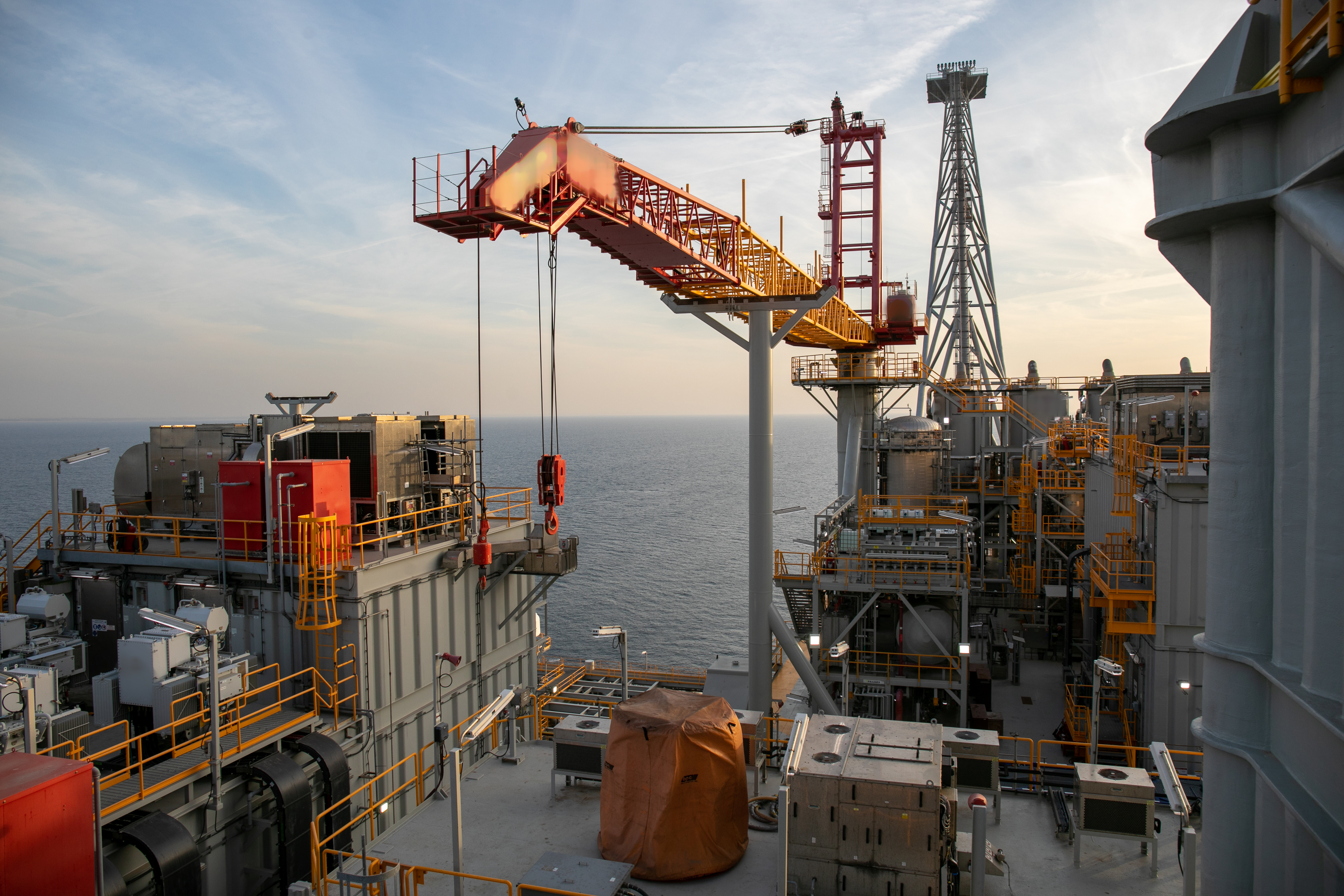what is natural gas?

Natural gas is the cleanest burning conventional fuel, producing lower levels of greenhouse gas emissions than the heavier hydrocarbon fuels, like coal and oil. It is found deep underground (onshore or under the ocean floor), in gaseous phase. It is colorless and odorless, lighter than air, and composed mainly of methane and other hydrocarbons.
The natural gas in the Leviathan reservoir, for example, was generated by the decomposition of organic material found in the strata known as "source rock." It originated with the remains of flora and fauna that sank into the seabed and were buried under other organic material and sediments.
The gas is produced by drilling into the reservoir and extracting it via a special infrastructure. The mixture extracted includes gas, water, and condensate, which must be separated in a processing facility.
Natural gas is mainly used by power stations as an energy source for electricity generation, and in industrial plants. It can also be employed for home heating and other industrial uses.
five advantages of natural gas
- Natural gas reduces air pollution
In its Pollution Release and Transfer Register Report for 2021, the Ministry of Environmental Protection attributes a substantial reduction in nitrogen oxide and sulfur oxide emissions between 2012 and 2021 mainly to an increased use of natural gas for electricity generation instead of coal. According to the PRTR, nitrogen oxide emissions dropped by 69% from 2012 to 2021, while sulfur oxide emissions declined by 84%.
- Natural gas increases state revenues
The development of Leviathan (and other reservoirs if discovered) will not only bring more natural gas to Israel; it will also put many billions of shekels into the state coffers, facilitating increased investment in education, social services, infrastructures, and more.
According to a Ministry of Energy report, state revenues from Tamar gas royalties during the period 2013 to 2021 amounted to 6.5 billion shekels. The report states that Israel's revenues from Leviathan gas royalties in 2020 and 2021 came to 1.2 billion shekels.
- The natural gas industry helps Israel's economy flourish
According to a Ministry of Energy report, from 2014 to 2021,the shift to natural gas saved the Israeli economy approximately 116 billion shekels in energy costs. The 11-billion-shekel development of the Tamar reservoir and the more than 13-billion-shekel development of the Leviathan reservoir (Phase 1) have proven our commitment to meeting the state's energy needs.
During 2017-2018, we invested nearly 1.2 billion shekels in purchasing services and equipment from local Israeli companies. Over 70% of Chevron Mediterranean Limited employees in Israel are Israelis who received specialized training from the company in the petroleum and gas sphere. We have invested 12 million shekels and founded, in cooperation with Ruppin Technological College, the Noble-Ruppin Center for Energy and Natural Gas, a school for training in the gas and energy professions. The aim is to meet national personnel training needs and to help develop technological and professional know-how for Israel's natural gas industry, and for the clean energy revolution.
- Natural gas bolsters Israel's energy security
Until 2004, Israel had to import nearly all of the fuels used in electricity generation. When gas began to flow from the Yam Tethys reservoir and then from Tamar, Israel entered a new era of energy security, which only increased as gas started to flow from the Leviathan reservoir.
The large volumes of natural gas found in Israeli waters supply our energy needs and help to strengthen our relationships with neighboring countries that want to buy natural gas. For the first time in our history, Israel has switched from being an energy importer to an energy exporter while improving its international standing and, in particular, its status in the Middle East.
- Natural gas isn't just for electricity generation; it’s also used for other purposes, such as transportation
As of now, over 28.5 million vehicles worldwide are powered by compressed natural gas, with an emphasis on public transportation.
Furthermore, the economic value of natural gas can be enhanced by increasing its use in energy-intensive industrial plants, in research and development, and by creating gas-based downstream industries.